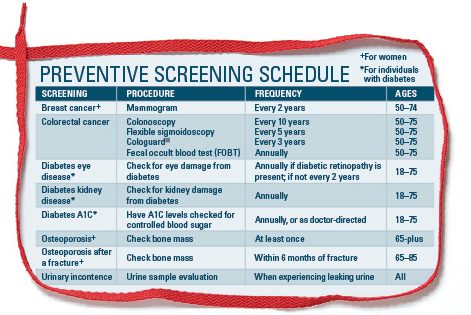Stay a step ahead with preventive doctor visits
October 4, 2017Claudia Kittock, an energetic 65-year-old Minneapolis resident and Saint Mary’s University of Minnesota professor, generally adheres to all medical recommendations and lives a healthy life.
But 12 years ago, Kittock was busy raising a family and caring for her ailing mother and father, so she put her own health care needs on hold. After her parent’s deaths, just two years apart, she felt run down and at her sister’s request, scheduled a physical, which led to a routine colonoscopy that was a few years overdue.
“About 30 seconds into my first colonoscopy, the doctor said, ‘Oh look, there’s cancer,” Kittock says.
The diagnosis started her on a journey that would include two surgeries to remove sections of her colon and liver, 32 radiation treatments and two six-month rounds of chemotherapy during a two-year period. Other than feeling worn out prior to the diagnoses, she showed no signs of colon cancer, had no family history, and was in good health. The screening, she says, helped save her life.

Doctor visits matter
When many older adults hear that they need to be in charge of managing their health, they think that means eating better and getting enough sleep and exercise. While those components are important, there’s one more to add to the list: go to the doctor.
While it might be natural to associate doctor visits with being sick, that’s far from the whole story. Regular check-ups with your physician for preventive care and medical screenings, as Kittock can attest, are among the best ways to stay on top of health issues before they have a chance to become serious conditions.
The top three leading causes of death for adults 65 and older are heart disease, cancer and stroke, according to the Centers for Disease Control and Prevention (CDC). A healthy diet, not smoking and regular exercise and wellness screenings all can go a long way in lowering risk factors.
Screening recommendations
When it comes to cancer screenings, such as mammograms, prostate exams, and pap smears, the picture is not totally clear, as was shared in this blog post. While medical experts say screenings are an important way to detect cancer before it causes problems, there are certain cancers that become less common as we age.
The chance of a woman developing cervical cancer actually decreases with age. Due to this, women 65 and older who have had three negative pap smears in a row no longer need to get screened, according to the American College of Obstetricians and Gynecologists.
The occurrence of breast cancer, however, continues to increase as a woman ages. Yearly breast exams are recommended, as are mammograms every two years for women ages 50–74. After 75, experts say women should discuss risk factors with their doctors and whether the test is needed.
For men, a clinical testicular exam is recommended around age 50, but an annual prostate exam is not.
Colonoscopies are still recommended for both men and women starting at age 50 and then every 10 years thereafter.
Keeping up with wellness exams pays off
Staying on schedule with wellness exams and screenings may seem like a time-consuming endeavor, but the payoff is worth it, says Kittock, who has been cancer-free since her last surgery in 2007.
Cancer made her a staunch advocate of screenings. It also sharpened her perspective on life and gave her a stronger sense of urgency about things she cares about.
“Things that I had always been passionate about before or cared about before, now have a different intensity. What are you waiting for?”
She also found a new passion in running. She started running during chemotherapy as an activity she could “conquer” at a time when so much was beyond her control. It is still a part of her health regimen today—along with routine doctor visits.
For anyone putting off a screening or a trip to the doctor, Kittock wants to stand out as an example of their importance.
“Because this is a big nothing compared to what follows if you don’t do it,” she says.
Preventive Care Recommendations
Helpful preventive care information for you and your family are available on the Preventive Care tab on bluecrossmn.com.
Editor’s note: This article first appeared in theSummer 2017 edition of thrive., a healthy living newsletter for Blue Cross Medicare members. The full issue, along with past issues, is available at bluecrossmn.com/PlatinumBluethrive.




